The American company has been chipping its employees for a year. Why this could be the future
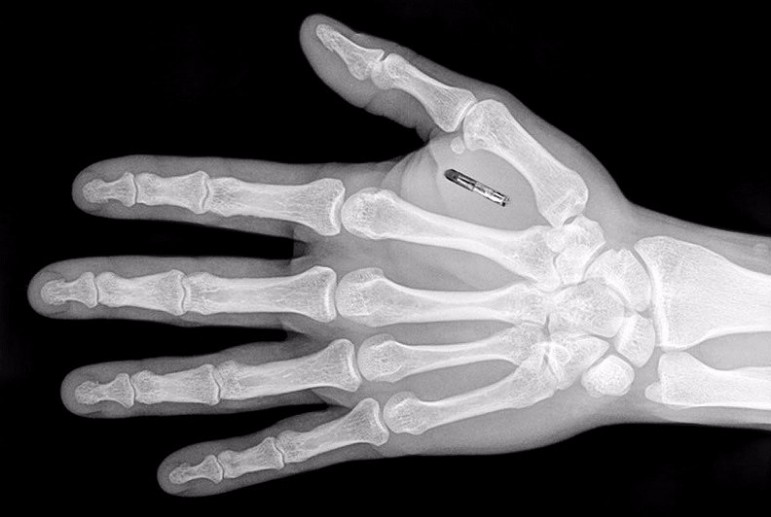
Implantation of microchips under the skin of cows and other domestic animals is not a new practice. Some farmers have been using such technology for a couple of decades instead of stigma, and in Australia, Great Britain and New Zealand, chipping dogs is mandatory, and you can be fined for a pet without a chip. But now the advanced versions of these chips, to the fear of conspiracy therapists, are beginning to be installed in people, moreover in a rather large scale.
Last summer, the American company 32 Market (Three Square Market), which produces office vending machines, became known throughout America - because it was the first to implant microchips under the skin of its employees. With their help, they began to open doors, log in to computers and even buy snacks from the company's automats. Subcutaneous implants replaced workers with a pass, a credit card, business cards and credit cards.
It all started with the CEO, Todd Westby, and a dozen employees. The rest joined on a voluntary basis, seeing that there is nothing to worry about. The price of chipping per person was $ 300. Westby says that for him the main advantages of this technology are in universality. Applications are much wider than traditional access control systems with magnetic passes, fingerprints or palms.
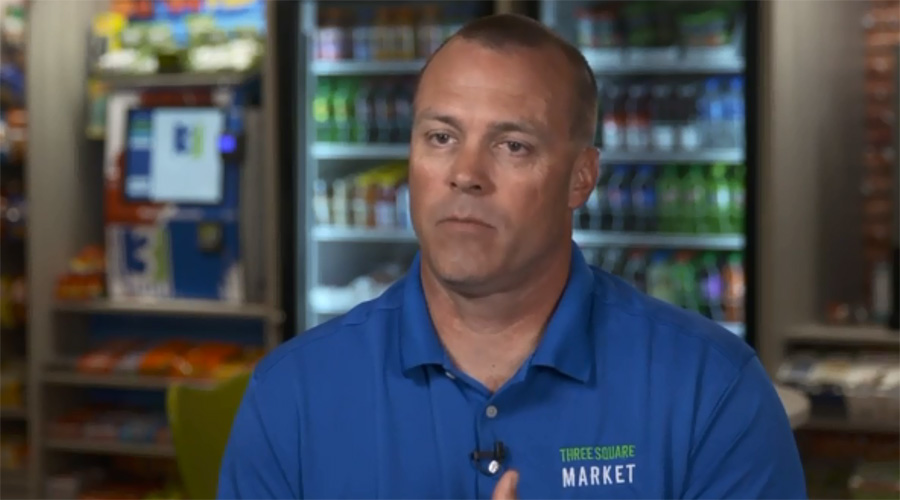
Todd Westby
A year later, of the 196 employees of the company, 92 installed chips. Only one person (who left 32 Market) decided to remove the device from his hand - which took five minutes.
Then one of the main criticisms towards the workers of 32 Market was “what if you want to be tracked?”. The reporters were told that if someone seriously wanted to watch their movements, they could do this by watching the smartphone or checking the history of Internet connections, and it would be much easier. And the RFID chips inserted in them don't even have GPS; they are recognized at a distance of no more than 15 cm from the reader, so that they can not be traced.
Now it must change. A few days ago, about a year after the start of his experiment, Todd Westby told CNBC that his company was now redefining itself into a chip maker. They continue to deal with their machines, but all the money, including several tens of millions of investments, is invested in the creation of a new type of subcutaneous chip. They have been developing it for almost a year; release is scheduled for the beginning of the 2019th. It will be a chip with GPS and sound activation, working from the heat of the human body.
32 Market says that after hundreds of reports, they saw how interesting the world is with their chip story, and decided that they might be ready to accept them in a wider market. They see the main purpose of their new chip in GPS surveillance of patients with dementia.
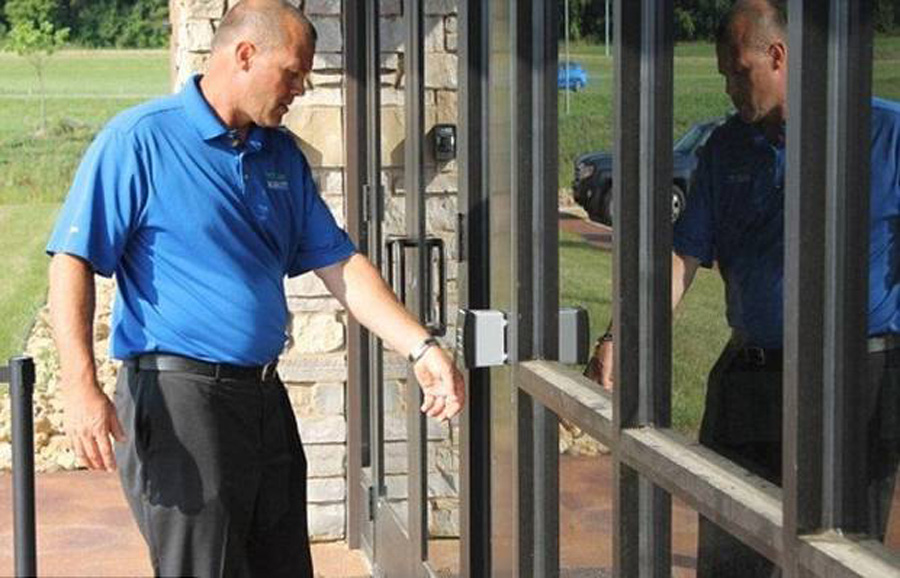
')
President 32 Market (and its new division, 32 Chip) Patrick McMallan says that this is, in fact, the only way out for those people who can forget all the facts about their identity. The chip embedded in the arm will be able to store the entire medical history of its carrier, and if the patient falls unconscious or loses memory, this data may become indispensable for emergency doctors. They will show the person's first and last name, his allergies, the medications he uses and his medical history.
Critics of technology do not believe that corporations are unlikely to use the collected data only for the good, as the story with Facebook has already shown. Data on the movement, health and habits of the client will be very interesting to many companies. For example, it will be possible to sell medical information about a person’s condition to pharmacy chains offering their drugs or food product makers aimed at a certain category of customers.
Noel Chelsea, a sociology professor at the University of Wisconsin-Milwaukee, said in an interview with USA Today that progress cannot be stopped, and the chip people of the future are inevitable. But several decades have to pass in order for the negative stigma around the technology to "dissolve":
Such chips will be in everyone, it just will not happen today. And not next year. Maybe not in my generation, but almost inevitably with our children.
Swedish experience
Most people chipping is popular in Sweden. One of the reasons is the prevalence of non-cash payments. Only 2% of transactions in this Scandinavian country are carried out in cash (in the US - 33%). Sweden's main chip company is BioHax International. It was founded in 2013 by biohacker Jovan Österlund, who previously owned a piercing studio. He inserted the chips to the first employees of 32 Market. Jovan explains that chips are not at all dangerous. They are made from FDA-approved bioglass, which is also used in surgery. There is no (yet) GPS in them, nobody tracks them. Plus - plastic cards that can replace the chip, are harmful to the environment: "they are made of a material that does not decompose for centuries."
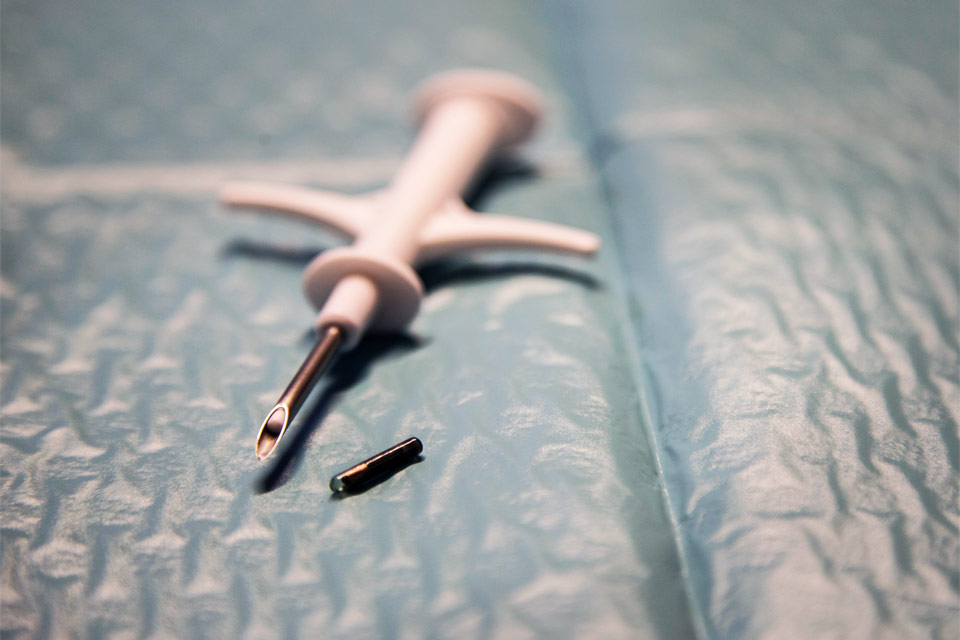
Osterlund talks about his strategy: his company's target audience from the very beginning were CEOs and top managers, especially technology companies. “To hook on such customers is to make a high-level impact.” The first BioHax client was Magnus Glentz, head of the IT company Red Hat. And further, the Swedish startup incubator Epicenter had a great influence on the popularization of chips in the country.
This digital hub in the center of Stockholm has 300 startups and innovative divisions of large companies. Their building is equipped with everything necessary for chips: here they replace credit cards, keys and a work permit. They also allow you to control the printer and other equipment. Every couple of months, Epicenter organizes beer and chip or wine and chip parties for employees and their friends. Anyone can be cleaned. The procedure costs about $ 150, but before its passage it is necessary to fill a bunch of papers.
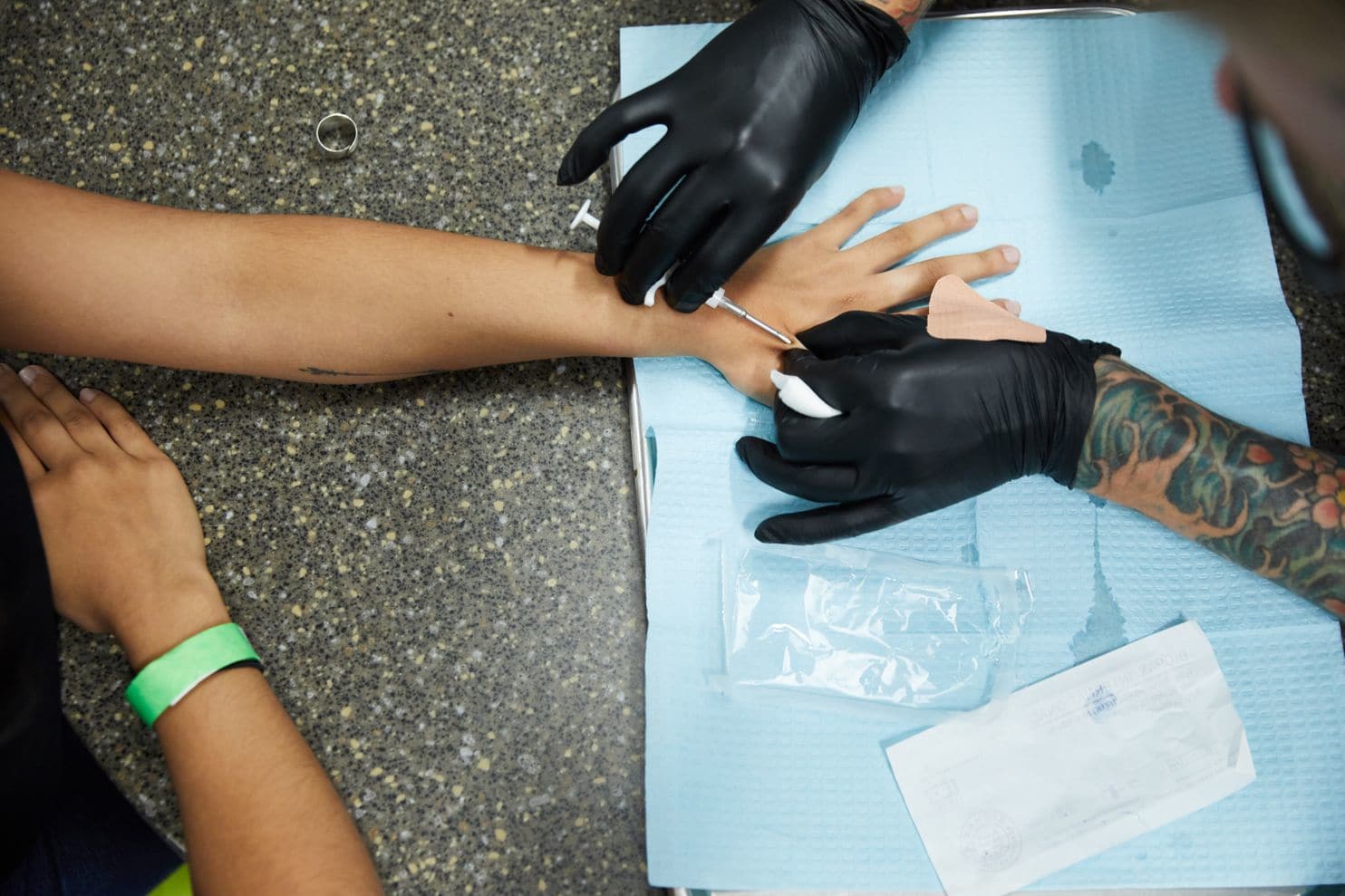
TV reporter gets his subcutaneous microchip at a chip party at Three Square Market in 2017
The chips have already implanted more than 200 directors of Swedish companies, in total, BioHax has four thousand customers. Microcircuits replace them with travel cards in the subway, train tickets, bank cards, business cards, club cards for gyms, apartment and car keys. BioHax now has three offices in Sweden and plans to open another one in London.
Options for the future
Many large companies simply dream that their employees want to install chips in themselves. They are only afraid of publicly admitting this - so as not to incite the public anger. At Amazon, the chips are still built into the “guns” of warehouse workers, and the corporation keeps track of where they are and how often they are “fired” by scanning the goods. And Walmart recently filed a patent for embedding chips in cash registers and shopping carts. They will record employee conversations with customers in order to understand how quickly and efficiently the service goes. Even for this, the supermarket chain has been criticized - they say that the cashier likes to chat with customers, during non-peak hours, on the contrary, it can create a good atmosphere on the line. And eavesdropping and watching people, even if they work for you, is actually not good.

Biohax International's Sweden Jovan Osterlund is holding a microchip that will soon be installed in Epicenter startups in Stockholm
But convenience for employees (and especially for the company) is only one of the factors of chipping. So far, small startups are following this path. Installing each chip is more expensive than just issuing an NFC card to each worker. For a company with hundreds of thousands of employees, the difference may be tens of millions of dollars. Experts believe that the main application of the technology in the near future will be found in those industries for which price does not matter.
Here are some arguments presented by the organization Applied Digital Solutions (ADS) and its subsidiary Verichip Corporation, by which they justify the distribution of implant chips:
- Search and rescue of people, including missing children or children taken as hostages, etc;
- Medical monitoring of high-risk patients;
- Supervision, surveillance and surveillance of military, diplomats and other important members of the government;
- Tracking, supervision and authentication of valuables;
- Tracking, detecting and observing people who love extreme sports (hiking, skiing, climbing, diving, etc.) and who could be seriously affected by an accident;
- Use during the war against terrorism (at airports and train stations).
A few years ago, a microchip implantation project started for all US military personnel. This is the responsibility of the DARPA research agency for the Pentagon. It explains that in this way much less soldiers will die from injuries and diseases, because the health of each of them will be closely monitored "from the inside." In addition, during tests using satellite communications, the chips made it possible to detect soldiers anywhere on the planet, including deep underground. So far, this task has spent $ 140 million since 2015, and this July allocated another $ 1.5 billion. It is planned to distribute this money to private companies that can develop the most efficient chips.
PS Pochtoy.com delivers parcels from US stores (subcutaneous microchips can not - customs prohibits = /). Registration with the code HABR - $ 7 to your account.
And now we have an action in honor of the beginning of the school year. Until September 16, delivery of the 16 most popular US stores - with a 10% discount . Our operators will place an order for you free of charge, redeem goods and combine parcels from different stores so that you save even more.
Source: https://habr.com/ru/post/421737/
All Articles